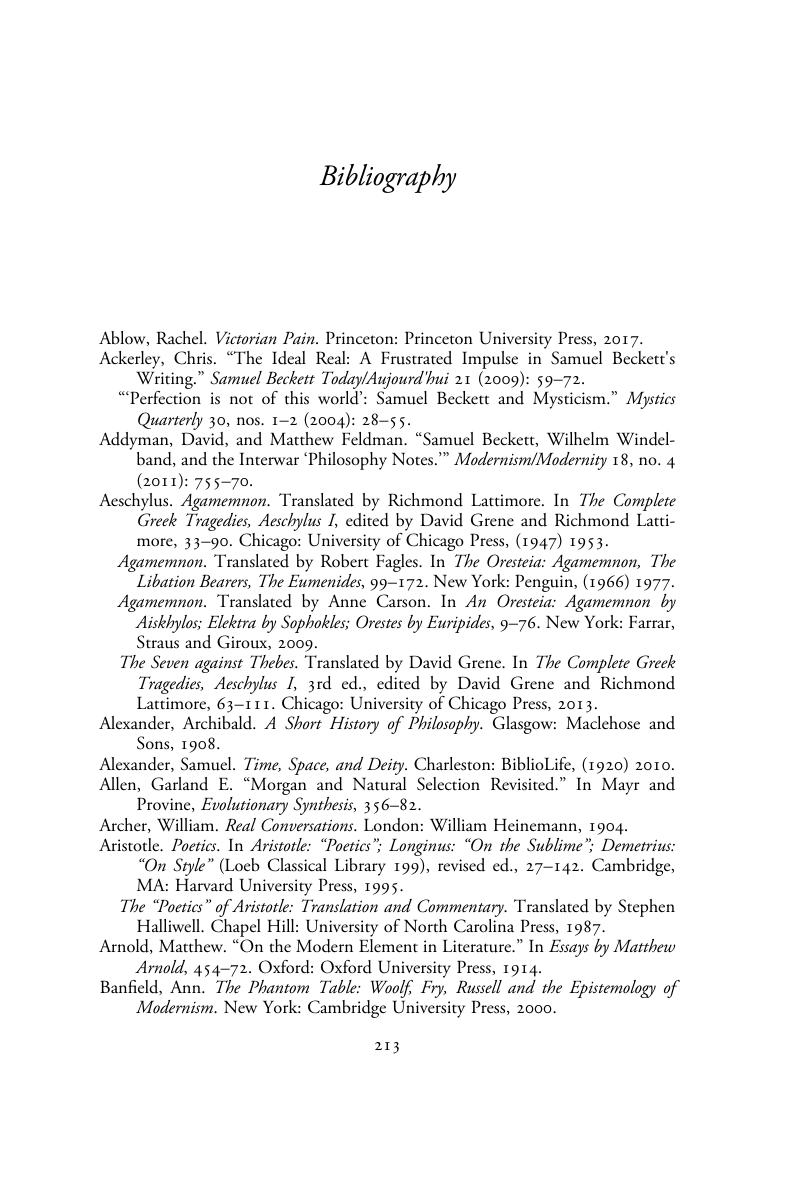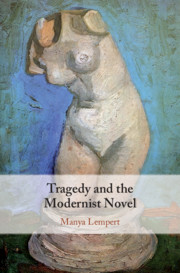Book contents
- Tragedy and the Modernist Novel
- Tragedy and the Modernist Novel
- Copyright page
- Dedication
- Contents
- Acknowledgments
- Chapter 1 Introduction
- Chapter 2 Hardy’s Theory of Tragic Character
- Chapter 3 Woolf and Darwin
- Chapter 4 Camus’s Modernist Forms and the Ethics of Tragedy
- Chapter 5 Beckett
- Notes
- Bibliography
- Index
- References
Bibliography
Published online by Cambridge University Press: 20 August 2020
- Tragedy and the Modernist Novel
- Tragedy and the Modernist Novel
- Copyright page
- Dedication
- Contents
- Acknowledgments
- Chapter 1 Introduction
- Chapter 2 Hardy’s Theory of Tragic Character
- Chapter 3 Woolf and Darwin
- Chapter 4 Camus’s Modernist Forms and the Ethics of Tragedy
- Chapter 5 Beckett
- Notes
- Bibliography
- Index
- References
Summary

- Type
- Chapter
- Information
- Tragedy and the Modernist Novel , pp. 213 - 227Publisher: Cambridge University PressPrint publication year: 2020

